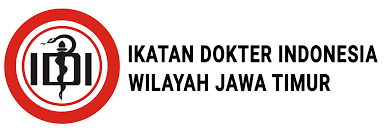The Effect of Curcumin Administration on p53 and Caspase-3 Expression in Cervical Cancer HeLa Cell Culture
Keywords:
Curcuma longa, HeLa Cell, Apoptosis, p53 Expression, Caspase-3Abstract
Introduction: Cervical cancer is a type of cancer with 605,000 new cases globally each year, with a mortality rate of 340,000. Curcuma longa, or curcumin, has the potential to enhance apoptosis in cervical cancer cells through the NF-kB-p53-caspase-3 pathway.
Material and Methods: This in vitro experimental study employed a Completely Randomized Design (CRD) using HeLa cell cultures derived from cervical adenocarcinoma (ATCC® CCL2™). Cells were grown in Dulbecco's Modified Eagle Medium (DMEM) and treated with curcumin at concentrations of 25 µg/mL, 50 µg/mL, 100 µg/mL, 150 µg/mL, and 250 µg/mL. Cytotoxicity was assessed using the CCK-8 assay, apoptosis via flow cytometry, and p53 and caspase-3 expression using immunofluorescence. Statistical analysis was performed with IBM Statistics SPSS 25.
Results: There was an increase in the percentage of apoptosis, p53 expression, and caspase-3 expression. At a dose of 100 µg/mL, total apoptosis increased significantly, reaching nearly 25% (p=0.000). P53 expression significantly increased at curcumin doses of 50 µg/mL and 100 µg/mL (p=0.021). There was a significant increase in caspase-3 expression, reaching approximately 86.2%, with a maximum effect at a dose of 100 µg/mL (p=0.002).
Conclusion: Curcumin shows promising potential as an anticancer agent by reducing cell viability and enhancing apoptotic activity in HeLa cervical cancer cells.
Downloads
Published
Issue
Section
License
Copyright (c) 2024 Irene Silvia Purba, Yahya Irwanto, Bambang Rahardjo, Puspita Handayani

This work is licensed under a Creative Commons Attribution 4.0 International License.







































